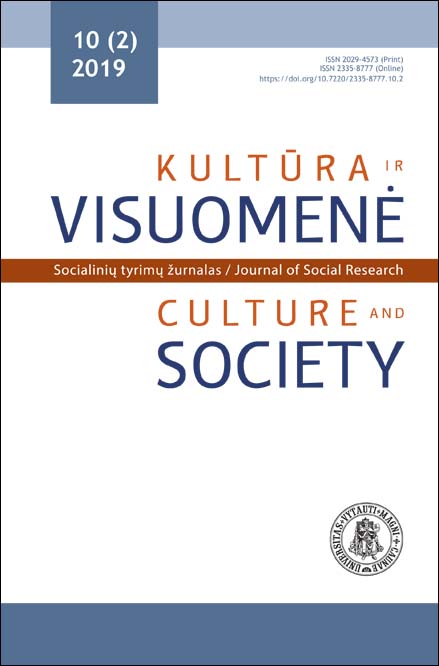Ambivalentiška karininko profesinė tapatybė
Ambivalent Professional Identity of a Military Officer
Author(s): Paulius BalsysSubject(s): Security and defense, Military policy, Politics and Identity
Published by: Vytauto Didžiojo Universitetas
Keywords: Ambivalence; Self-realization; Hierarchy; Identity; Collectivity;Individualism;
Summary/Abstract: After the Second World War, Western European societies had seen some changes in cultural values associated with liberalization, individualism, and hedonism. Value change in society becomes more and more relevant because it means the decreasing level of traditionalism and individual commitment to the group whereas self-realization becomes more and more relevant. After the war, the peace time was established and as a result the importance of modern state armies started to diminish. Nowadays modern armies are affected by organizational changes and adapt the characteristics of civilian organizations. According to some authors, in postindustrial society the professional identity of a military officer is similar to the one of a manager or an ordinary bureaucrat. For a long time, the profession of a military officer was associated with heroism, idealism, honor and prestige. The officers’ corps was regarded as a military elite manifesting leadership and high standards of a military ethics. These values remain relevant in the normative documents of armies. As an army representative, military officer is also a member of a civil society. Therefore, a military officer faces the challenge of having to adapt to culturally different values of both modern society and traditional military. His professional identity has to combine culturally diverse landmarks of both society and the army. Ambivalent values determine the conflict of different values in officer’s professional identity. The conducted research demonstrates that ambivalence points to the military officers’ dissatisfaction with self-realization in military service, horizontal relationships with subordinates and compatibility of family and service time.
Journal: Kultūra ir visuomenė: socialinių tyrimų žurnalas
- Issue Year: 10/2019
- Issue No: 2
- Page Range: 71-85
- Page Count: 15
- Language: Lithuanian

